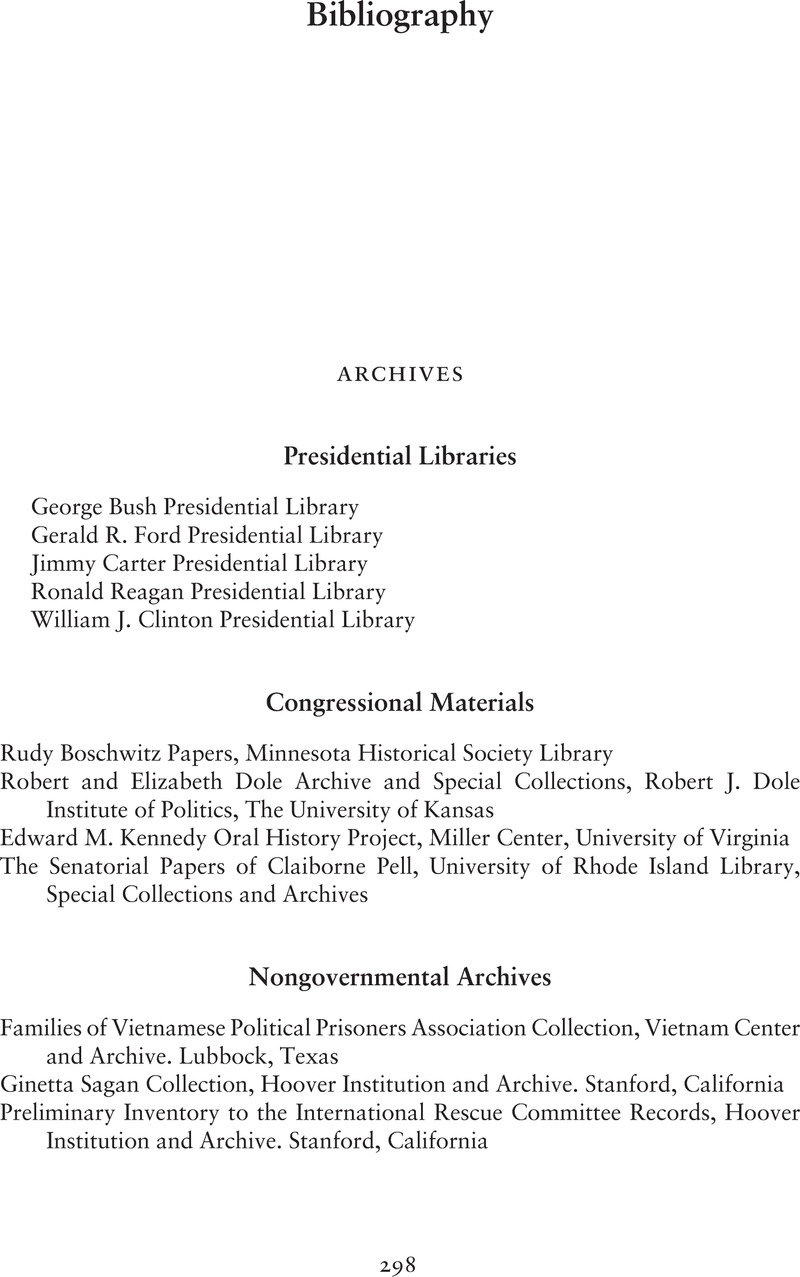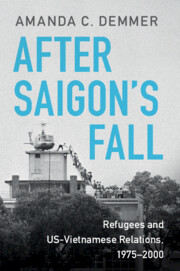Bibliography
Published online by Cambridge University Press: 08 April 2021
Summary

- Type
- Chapter
- Information
- After Saigon's FallRefugees and US-Vietnamese Relations, 1975–2000, pp. 298 - 310Publisher: Cambridge University PressPrint publication year: 2021

